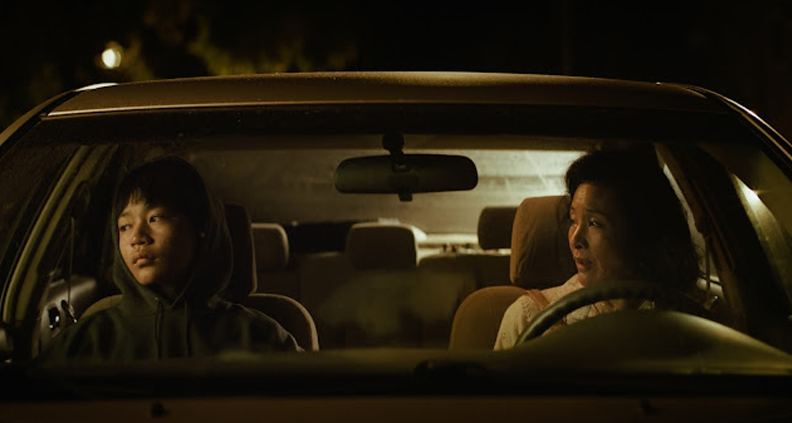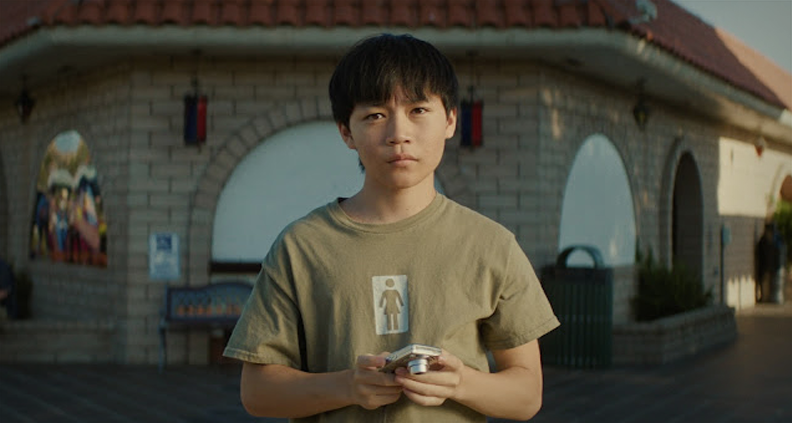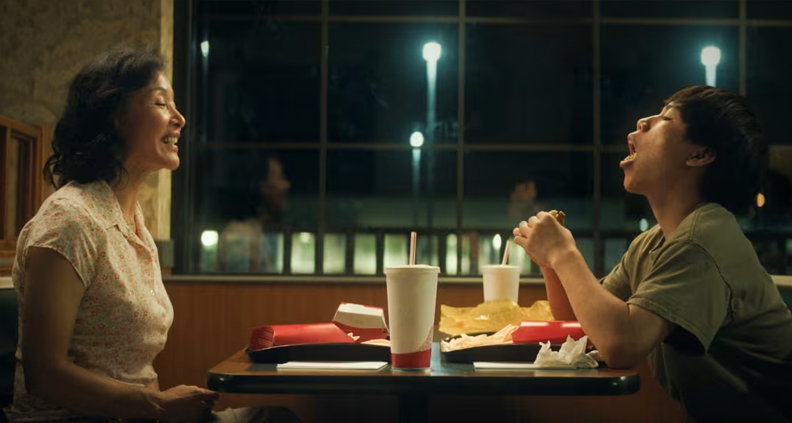DÌDI’s Casting Directors on Capturing Coming-Of-Age Angst and the Future of Casting
DÌDI (弟弟) is the type of cinematic experience we all crave but rarely receive these days: an authentic coming-of-age story with a great cast.
The story follows Chris, a Taiwanese American teen trying to find himself in the Bay Area in 2008. As he grapples with complex family and social dynamics, I could hear the theater audience laughing, groaning, and yes, crying. DÌDI feels both personal and universal, thanks in large part to its committed performances. While the cast includes many young and first time actors, it also features Joan Chen, whose poignant portrayal of Chris’s mother, Chungsing, is a standout. At one point, when her character receives disappointing news, there was a collective ‘Aw!’ as audience members expressed heartbreak on her behalf.
Writer/director Sean Wang drew from his own adolescent experiences for DÌDI, and a post-film dedication to ‘mom’ showcases how close these characters are to the filmmaker’s heart.

The film shines in scenes between Chris, played by Izaac Wang, and his mother, played by Chen. Together, they create a believable relationship that is funny, frustrating, and heartache-inducing. Both mother and son struggle with loneliness and a desire to find themselves through art, but generational and cultural divides put them at emotional odds for most of the film, making it all the more satisfying when they do connect.
You don’t get these kinds of fully realized characters, or strong emotional reactions from an audience, without expert casting. The film’s casting directors, Nafisa Kaptownwala and Natalie Lin, were clearly up to the task. Their background in street casting, commercials, and fashion, as well as shared experiences with the characters, made them uniquely suited for DÌDI’s coming-of-age story.
Nafisa Kaptownwala and Natalie Lin, Casting Directors
This film focuses on some pretty specific dynamics that can be really challenging from a casting standpoint— a group of young teens, as well as a multigenerational family. How did you approach these challenges to help create the level of authenticity the film and actors were able to achieve?
NAFISA KAPTOWNWALA: This is a tricky question! I think because I don’t look at some roles more challenging than others. Every role has its challenges, and ultimately, I approach it by understanding the story and what the narrative is illustrating and visualizing who are the best people to bring that to life. I start there and take each challenge as it comes.

DÌDI has a very talented young lead, played by Izaac Wang, and includes so many other young actors. How do you go about casting first time or less experienced actors, especially when you know they have to carry a film?
NATALIE LIN: Our approach with street casting is much different than our approach with trained actors. When we’re out street scouting looking for people to audition for film roles, really what we’re after is someone who’s essence naturally embodies the role already without having to try much.
NK: I think the hesitation with casting first time actors is performance, but in the case of DÌDI, it is a universal story in so many ways and many of the actors were able to connect with the story and put themselves in it. Because it is such a relatable story, it actually felt like the only approach that made sense, to find people that relate to the story to basically play themselves.
At what point did Joan Chen become involved? Given that she is such a veteran and a director herself, I’d love to hear more about what it was like finding that vital mother-son dynamic in the casting process with her.
NL: Sean had her in mind for Chungsing from day one. We were all thrilled to have her join our cast and it really feels like the role was meant for her.
Since this is a very personal film for the director, Sean Wang, how do you honor that in the casting, especially when you’re casting characters inspired by real people? Was that something you discussed with him going in?
NL: I grew up in the Bay Area about an hour away from Fremont, and I think that because of this I had a natural understanding of Sean’s instincts when it came to what kind of kids we were drawn to amongst the various roles. Sean did a really thorough job of painting a vivid picture of each character for Nafisa and me. He gave us all his trust in finding these kids, and the entire casting process with both him and our producers felt very collaborative. They all trusted in our process and our instincts and everything came together like a little puzzle. Truly could not have asked for a sweeter introduction into the feature world than with this team.
NK: Sean showed us a lot of photos from the past and inspo images of people he knew. It felt very close to home! I didn’t grow up in the Bay, but I did grow up in a very similar community, of mostly 1st and 2nd generation immigrants around the same time as Sean! It didn’t take much imagination to capture what Sean was expressing because I felt like I lived it.

The aesthetics and technology from 2008 play such a big role in this film; and yet its themes are so timeless. How did you approach that duality in the casting process, where it’s a period piece but still needs to resonate with kids today?
NL: I think there are some universal truths to being thirteen years old that span beyond any time period. Teaching the kids how to take a Myspace selfie was a whole thing, down to the camera angles and the mirror flash 🙂
NK: There were definitely a bunch of references that the kids would trip over in auditions. Like I remember the young people we would audition not knowing how to pronounce PETA. And that really stuck with me, cause you would assume that’s a universal thing, but some things just don’t translate generationally, I suppose. But ultimately, what was happening in 2008 is not radically far off from what’s happening now, especially packaged in the overarching themes the film deals with. It was easy enough for the actors to understand. Like the boys in the film were making silly YouTube videos, and now the kids are making TikToks. Not so different! And in so many ways, the aesthetics of that era like digital cameras and myspace photos are actually back.
Your agency, In Search Of, also does casting for fashion and advertising. How did your experience in those mediums inform your process for this film?
NK: Well we treat all of the projects we approach with the same attitude, by asking ourselves: What is the story we’re trying to tell? What are all of the expansive ways to illustrate that story? Because advertising moves so quickly, we’ve learned to be experts at finding sort of niche characters in a very short amount of time. There are a lot of skills we develop working on quick turnover projects we apply to our film work and vice versa.
I saw you had an open casting call on Instagram for this film, as well as your upcoming film Josephine. What’s it like using Instagram for casting purposes, and what role do you think social media will play in the future of casting?
NL: Social media is a very helpful resource for us when it comes to sharing casting calls and looking for specific types of talent. The sprawling nature of Instagram and TikTok was extremely helpful while casting DÌDI. We were able to get in touch with many film orgs who shared our nationwide casting call posts, and between us, Sean, and the production team we had so many friends in the Bay Area and beyond who shared our call far and wide. Someone on TikTok shared our casting call – it went kind of viral, and we had a flood of submissions after that.
NK: I think social media has already transformed casting enormously. What I’ve noticed is that it does allow this space for “first time actors” to be considered for roles because we’re exposed to so many interesting and dynamic people online. Now we’re in a world where movies are being made about people because of how they represent themselves on social media. I think that’s a really exciting space to play in, because it allows for more nuanced and diverse storytelling.
Film Independent promotes unique independent voices by helping filmmakers create and advance new work. To become a Member of Film Independent, just click here. To support us with a donation, click here.
Keep up with Film Independent…
